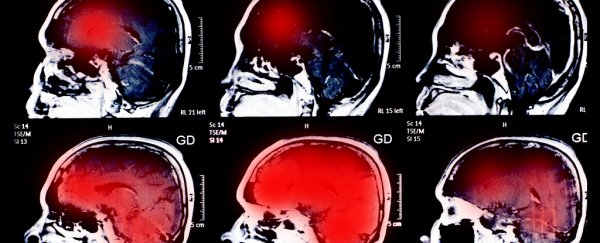For centuries, scientists have been investigating the link between human brain size and intelligence, with several studies suggesting inconclusively that the bigger the brain, the smarter a person.
But a review of 88 studies involving more than 8,000 participants has now shown that even though a small link between brain volume and IQ exists, there's no evidence to suggest it's a causal one. Instead, it's the structure of your brain that seems play a larger role in determining how smart you are.
Although they're not perfect, IQ - or intelligence quotient - tests, are currently the best way we can measure someone's ability to rationally understand the world around them, as well as their memory, reasoning, and logic skills. And as a result, they're often used to help scientists try to make sense of what makes people more or less 'intelligent' than their peers.
In this instance, researchers from Austria, the Netherlands, and Germany compared IQ test results to participants' brain volumes, measured using brain imaging methods over multiple studies.
"Although a certain association is observable, brain volume appears to be of only little practical relevance," said lead researcher Jakob Pietschnig, from the University of Vienna in Austria. "Rather, brain structure and integrity appear to be more important as a biological foundation of IQ, whilst brain size works as one of many compensatory mechanisms of cognitive functions."
This isn't the first nail in the coffin for the 'bigger brain = better' argument. The first stumbling block was when scientists realised that humans - arguably the most intelligent animals on the planet - don't actually have the biggest brains in the animal kingdom relative to body size (that honour goes to the humble shrew).
To make up for that, scientists came up with a new way to measure brain size, known as the 'encephalisation quotient', which explains an animal's brain size relative to the expected brain size in related taxa. And when taking that into account, humans - thankfully - come at the top of the heap.
But in the new review, the researchers looked at both unpublished and published studies, and found that the link between brain volume and higher IQ had been overestimated and exaggerated in the literature.
This is because of publication bias, which means that journals are more willing to publish papers that find a strong link between something rather than those that find a small one, or are inconclusive.
But regardless, Pietschnig and his team showed that there was still a weak association between bigger brains and higher IQs throughout the research, which was independent of sex and age - but they also showed that brain size didn't have much predictive value when it came to measuring intelligence.
Their conclusion is supported by the fact that men consistently have higher brain volumes than women, but that there's no significant difference between the sexes when it comes to IQ tests.
"While it is tempting to interpret this association in the context of human cognitive evolution and species differences in brain size and cognitive ability, we show that it is not warranted to interpret brain size as an isomorphic proxy of human intelligence differences," the researchers conclude in Neuroscience and Behavioural Reviews.
And in case you were wondering, scientists have also studied Einstein's brain in great detail, and found that it's not that different from the rest of ours.
So next time you feel sad about the size of your head, just remember that you have as much potential in there as even the largest brains out there.
